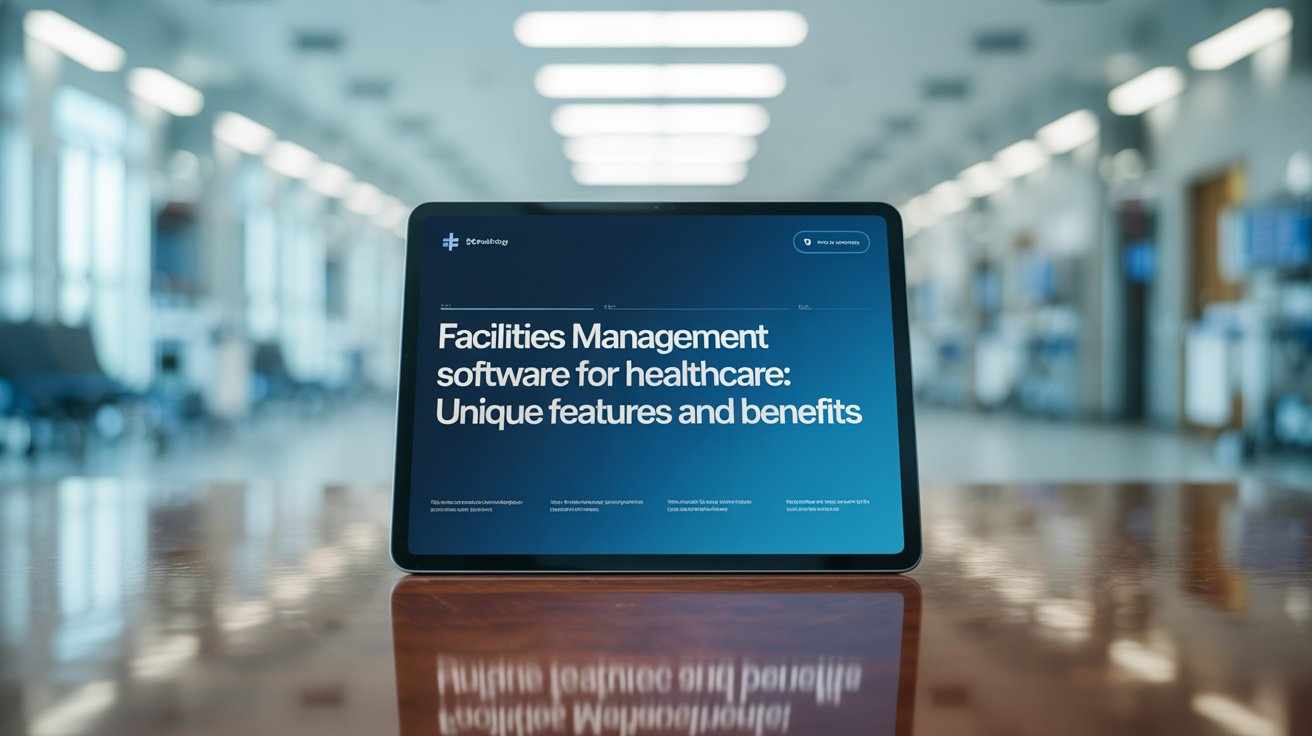Introduction

Hospital Management Systems (HMS) are integrated software solutions that automate and simplify hospital operations. These systems oversee major functions such as patient care, medical records, billing, appointments, and inventory. By minimizing manual labor, enhanced communication, and improved efficiency, HMS makes workflows smoother, patient care enhanced, and hospital operations optimized.
What is a Hospital Management System (HMS)?
A Hospital Management System (HMS) is a consolidated computerized platform that centralizes and automates core administrative and clinical functions of a hospital, including patient registration, appointment scheduling, billing, management of medical records, inventory tracking, and human resource management. Centralizing patients' data and organizing communication between hospital departments helps HMS enhance the accuracy, accessibility, and security of important information to run more smoothly. It also minimizes human labor, maximizes workflow efficiency, and enables real-time decision-making, thus resulting in enhanced patient care and hospital performance.
Along with increasing operational efficiency, newer HMS solutions typically include advanced technologies like cloud computing, artificial intelligence (AI), and machine learning. These help in improved data analysis, predictive analysis, telemedicine functions, and remote monitoring of patients, further enhancing healthcare services. Therefore, HMS not only leads to decreased operational costs and avoidance of errors, but also creates an environment of collaboration among healthcare providers for better patient outcomes, regulation compliance, and enhanced overall healthcare quality.
Types of Hospital Management Systems
1.Integrated Hospital Management System
This type of HMS combines various functions such as patient management, billing, and inventory control into one unified platform. It ensures all hospital departments communicate effectively, reducing the chances of errors and enhancing workflow efficiency.
2.Standalone Hospital Management System
A standalone HMS focuses on one specific function, such as patient registration or billing. It’s typically used by smaller healthcare facilities that need to manage fewer operations but still require a digital solution for those particular functions.
3.Cloud-Based Hospital Management System
Cloud-based HMS provides real-time access to hospital data via the internet. This type is ideal for large, multi-location healthcare organizations that require access to information from different locations without the need for expensive on-site infrastructure.
4.Open Source Hospital Management System
Open-source HMS software offers the flexibility to modify and customize the system according to specific needs. This is perfect for hospitals that need tailor-made solutions but may not have the budget for expensive proprietary systems.
Advantages of Hospital Management Systems
1.Enhanced Patient Care
HMS allows medical professionals to retrieve patient details promptly, leading to quicker diagnosis and treatment. It also helps in better interdepartmental coordination, enhancing overall care quality.
2.Increased Efficiency
Automating mundane tasks like patient registration and billing, hospitals are able to save on operational downtime, allowing them to dedicate their resources to activities that enhance patient care.
3.Cost Savings
Hospital management systems assist in streamlining processes, eliminating duplication, and minimizing errors, thus resulting in substantial cost savings. Automation also minimizes the amount of manual labor required, hence making the hospital more economical.
4.Data Security and Compliance
HMS stores sensitive patient information securely and is in accordance with healthcare regulations like HIPAA. Hospitals can use stringent access controls and audit trails to ensure unauthorized access is avoided.
Key Features of a Hospital Management System
1.Patient Management
An integrated patient management module supports electronic tracking of patient records such as medical history, treatments, and medications. This provides medical professionals with the latest and accurate patient information at all times.
2.Billing and Payments
The HMS manages all the billing activities, such as invoicing, insurance claims, and payments. This provides accurate and streamlined financial transactions, minimizing errors and administrative efforts.
3.Appointment Scheduling
The system enables patients to schedule appointments online, and health practitioners can efficiently manage their timetables. Reminders may also be automated for patients, minimizing no-shows and cancellations.
4.Inventory Management
The system monitors real-time medical supplies and medicines, enabling hospitals to prevent shortages and overstocking. This minimizes the use of resources inefficiently and delays in patient care.
5.Report Generation
HMS offers tools to create comprehensive reports on hospital performance, patient care, finances, and other critical metrics. These reports are useful for strategic planning and performance enhancement.
What are the Challenges of Developing a Hospital Management System?

Coming up with a Hospital Management System (HMS) has numerous challenges, most notably because of the complexity of the healthcare environment as well as making sure the system is strong, secure, and meets industry compliance. Below are some of the main challenges:
1. Data Security and Privacy:
Patient Data Protection: Ensuring patient data is kept secure and confidential is critical. The system must comply with standards like HIPAA (Health Insurance Portability and Accountability Act) in the U.S. or GDPR (General Data Protection Regulation) in the EU.
Access Control: Different users (doctors, nurses, administrative staff, etc.) have varying levels of access, which requires complex permission management to prevent unauthorized access to sensitive information.
2. Integration with Existing Systems:
Most hospitals have legacy systems in place to perform activities such as billing, stock management, or patient histories. It is often a major problem to integrate the new HMS with these legacy systems without any disruptions.
Migration of data and synchronizing old and new systems can generate errors and inconsistencies.
3. Compliance with Regulations:
Hospitals have to adhere to health regulations, which differ according to country or region. Implementing the HMS in accordance with these constantly changing regulations (e.g., ICD-10 codes or medical billing guidelines) is an ongoing challenge.
Maintaining the system with the latest legal requirements is time-consuming and expensive.
4. Real-time Data Processing:
Hospitals need real-time access to patient information for effective care. The system should support high volumes of data from multiple departments (e.g., emergency, pharmacy, diagnostics) and process the data in real-time with zero lag.
5. Simple User Interface:
A hospital system ought to be easy for medical staff who are not necessarily computer wizards. It can be challenging to balance sophisticated functionality with a simple user interface.
The system must be user-friendly to various stakeholders (doctors, nurses, administrators, etc.) with different requirements.
6. Scalability:
Hospitals are dynamic places, and the HMS needs to be scalable to adjust for increasing patient volumes, new departments, and changing service lines.
Providing assurance that the system can support added workloads and data storage over a period of time is critical.
7. Interoperability:
Hospitals will frequently have to exchange information with outside systems such as labs, insurance, and other healthcare facilities. Interoperability between diverse healthcare IT solutions is a problematic issue.
Interchange protocols such as HL7 and FHIR are commonly used to exchange information, but adapting to various technologies is not straightforward.
8. System Downtime:
Even minimal downtime in a hospital management system can have a serious effect on patient care and hospital operations. Having the system highly available and with failover capabilities is important.
9. Training and Adoption:
Implementing a new HMS to hospital staff involves extensive training. Physicians, nurses, and administrators need to be trained on the system, which may take time and resources.
Resistance to change by hospital staff is also a common issue, since some might be accustomed to old ways of doing things rather than utilizing a computerized system.
10. Cost and Budget Management:
Creating and sustaining a Hospital Management System may be costly. Meeting the functionality and performance needed while remaining within budget limits is usually a key challenge.
Regular maintenance, upgrading, and checking for compliance can also contribute to the long-term expense of the system.
Tackling these challenges calls for a well-designed development process, constant updates, an emphasis on security and privacy, and proper change management approaches to hospital staff.
Conclusion
A Hospital Management System is a crucial tool for modern healthcare institutions. By automating administrative tasks, improving data security, and providing real-time access to critical patient information, it enhances efficiency and patient care while reducing costs. As hospitals continue to adopt technology, HMS will play a central role in shaping the future of healthcare delivery.
By choosing the right HMS with the right features and functionalities, hospitals can ensure smoother operations and a better experience for both healthcare providers and patients.
If you plan to build hospital management software in 2023, Galsier Inc. can provide you with the best healthcare app developers from around the globe. Connect with India’s top healthcare app development company to build top-notch healthcare management software. Contact Glasier Inc.




















Write a comment ...